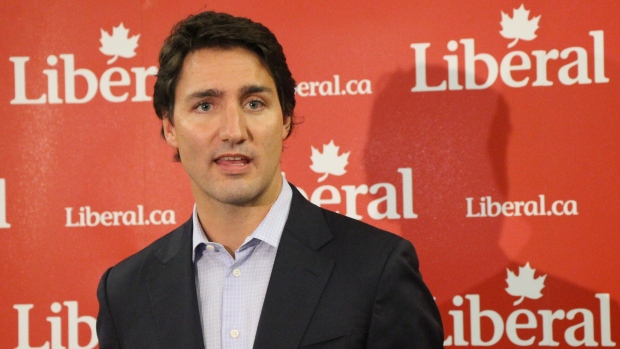Senate weighs in
On June 8th, 2017, a bipartisan team of United States Senators Cornyn, Cruz, Hoeven, Moran, Heitkamp, Daines, Inhofe, and Murkowski sent a letter to the United States Trade Representative, Robert Lighthizer, urging him to consider how a revision of the North American Free Trade Agreement (NAFTA) might impact United States energy interests.
The letter stressed the interdependence of the United States, Canada, and Mexico energy industries, and asked that Ambassador Lighthizer consider including these six key points in his negotiations in revising and upgrading NAFTA:
- Free flows across U.S.-Canada-Mexico borders of all energy products including electricity, oil, natural gas, as well as derived products such as refined products, petrochemicals or other energy-intensive manufactured goods;
- Zero tariffs for the imports and exports across the United States, Mexico, and Canada of all energy products;
- Open access for U.S. investors to Mexico and Canada’s energy markets, with competitive and transparent bidding for (a) licenses (such as oil and gas mineral licenses) and (b) sourcing of labor and materials;
- Protections for U.S. investors in Mexico and Canada consistent with U.S. law and practice;
- Safeguard and strengthen intellectual property rights;
- Free flow of data across the United States, Mexico, and Canada borders.
The letter was endorsed by the American Petroleum Institute (API) on June 9th, 2017.
House of Representatives weighs in
A letter was issued to Ambassador Lighthizer last week by a bipartisan group of members of the U.S. House of Representatives. The letter from the House members did not outline the same six guidance points as the letter from the Senate, but did ask that Ambassador Lighthizer consider the potential for NAFTA to impact North American energy independence and security.
The House letter specifically stated that, “the United States is better off securing its energy supplies on the continent than from less reliable sources.”
Terminate or renegotiate NAFTA?
President Trump spoke with both President Peña Nieto of Mexico and Prime Minister Trudeau of Canada about his intentions with NAFTA in in two separate phone calls in late April.


In the conversations, President Trump agreed not to terminate NAFTA at this time and the leaders agreed to proceed swiftly, according to their required internal procedures, to enable the renegotiation of the NAFTA deal to the benefit of all three countries.
President Trump said, “It is my privilege to bring NAFTA up to date through renegotiation. It is an honor to deal with both President Peña Nieto and Prime Minister Trudeau, and I believe that the end result will make all three countries stronger and better.”
Meeting with Argentina’s President Mauricio Macri on April 26, 2017, at the White House, the following exchange took place between President Macri and President Trump:

PRESIDENT MACRI: Mr. President, on renegotiating NAFTA, tell me how you came about the decision —
PRESIDENT TRUMP: Well, I was going to terminate NAFTA as of two or three days from now. The President of Mexico, who I have a very, very good relationship, called me, and also the Prime Minister of Canada, who I have a very good relationship. And I like both of these gentlemen very much.
They called me and they said, rather than terminating NAFTA, could you please renegotiate? I like them very much. I respect their countries very much. The relationship is very special. And I said, I will hold on the termination; let’s see if we can make it a fair deal. Because NAFTA has been a horrible deal for the United States. It’s been very good for Canada, it’s been very good for Mexico, but it’s been horrible for the United States.
And if you check my campaign — any of my speeches — I said, I’ll either renegotiate or I’ll terminate. So they asked me to renegotiate — I will. And I think we’ll be successful in the renegotiation, which, frankly, would be good because it would be simpler.
But we have to make a deal that’s fair for the United States. They understand that. And so I decided rather than terminating NAFTA, which would be a pretty big shock to the system, we will renegotiate.
Now, if I’m unable to make a fair deal, if I’m unable to make a fair deal for the United States, meaning a fair deal for our workers and our companies, I will terminate NAFTA. But we’re going to give renegotiation a good, strong shot.
U.S.-Mexico: energy is big business
Natural gas exports to Mexico are expected to double in just the next two years. Forbes commented that “Mexico will be sending enough money in natural gas purchases every year to pay the estimated costs of a border wall.
“Currently, 17 pipelines deliver natural gas to Mexico and another four are under construction. Nevertheless, Mexican demand is so high that we don’t have enough pipelines to deliver all the natural gas Mexico would like to purchase. In 2016, for the first time, U.S. energy producers delivered significant quantities of natural gas to Mexico via liquefied natural gas (LNG) tankers.”
On May 18th, 2017; the Trump administration formally initiated the renegotiation of NAFTA. Negotiations with Canada and Mexico may begin in August of 2017, according to the Washington Post.







